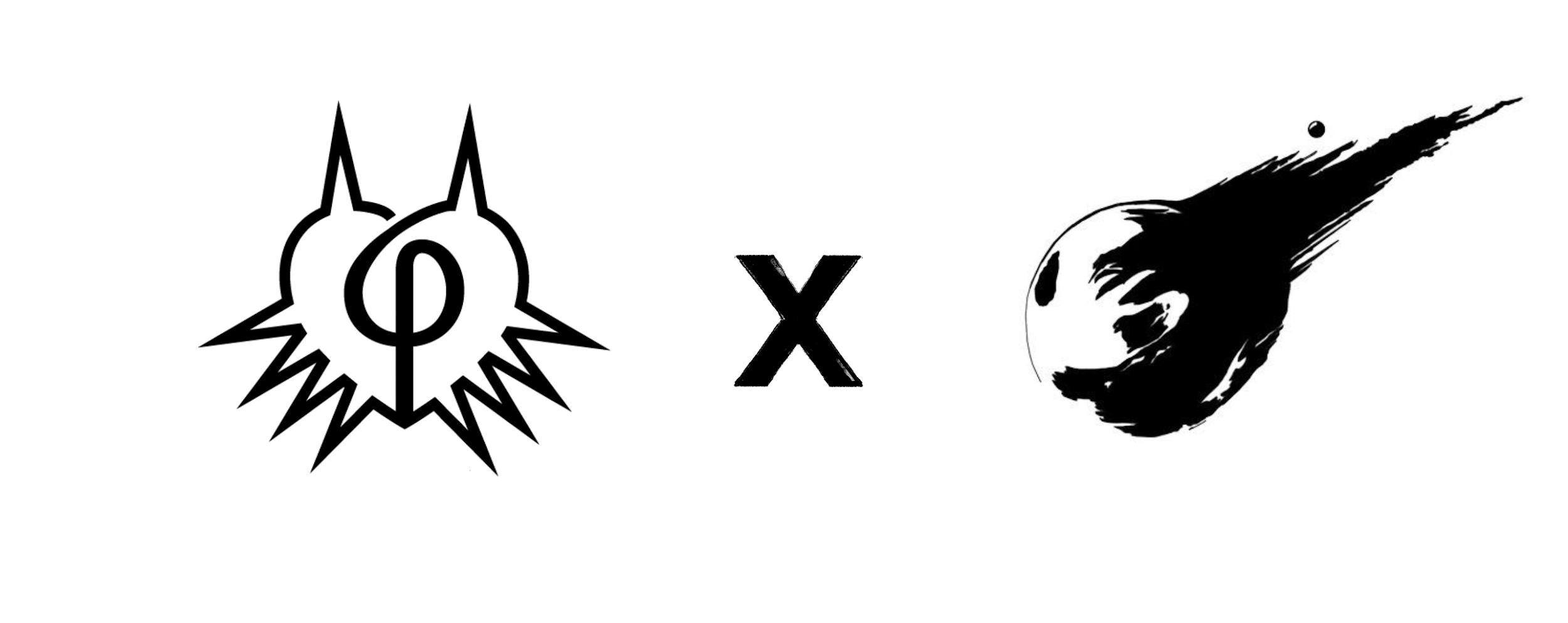
The following is an entry in The Legacy of Final Fantasy VII Remake, a series that analyzes how and why the remake of Final Fantasy VII is a landmark innovation in both Final Fantasy and video-game storytelling more broadly. Read the series’ mission statement here.
As adamant as I am about not spoiling any aspect of a game for myself before its release, one thing you must know about me is that I am a diehard Final Fantasy VII fan. Such a diehard, in fact, that I must confess to you, Dear Reader, that I betrayed my principles and watched the trailers for Final Fantasy VII Remake as they were released.
Yes, I know, there is no sin greater than going against one’s own morals, but try to understand things from my perspective: the game looked really cool.
I was beyond excited to see these characters—Cloud, Barrett, Tifa, and Aerith—given new life, and I couldn’t wait to explore this fully fleshed out version of Midgar with them. I was only cautiously optimistic, of course (see the general state of Final Fantasy from 2009 onwards), but I was getting the distinct impression from these trailers that the developers really and truly cared about this game’s story: this game looked like it was going to be a tribute to and celebration of not just the original game, but also all the subsequent stories that came after. Final Fantasy VII Remake could be, I thought, the final word on the franchise, wrapping everything up nicely and safeguarding the game’s legacy for the foreseeable future.
And so I, like many of you, was primed to expect something like a remastered version of the game that newer generations of gamers could pick up and experience if they had missed out on the original or if it didn’t appeal to them for whatever reason. They could walk through the sprawling and grungy metropolis of Midgar, engage with the subtle yet complex materia system, and come to know all the characters that had become such icons of gaming since we first met them: Cloud, Red XIII, Barrett, Tifa, Aerith, and…Wait, who the hell is this?
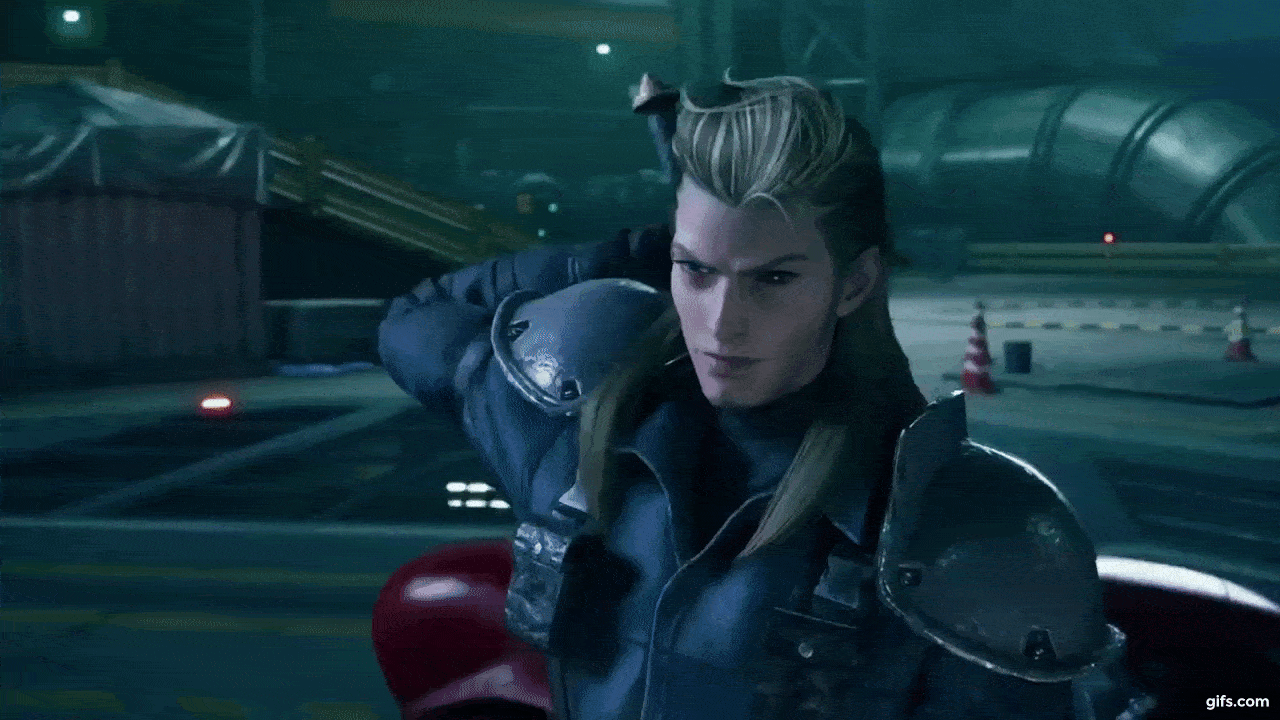
No really, I thought, just who in the world is this character? Everything else in those trailers seemed to indicate that the story of Remake would be following the same general template of the original, and that we’d meet the same characters. But this guy? As I scrolled through the faces of Final Fantasy VII characters in my head, I just couldn’t place him, and so my mind started racing about just who this person would be, and what kind of impact he may have on the story.
And so began my feverish, fanboy look into who this character may be. Could he be a member of the super-secret Shinra organization Deep Ground that we learned about in Dirge of Cerberus? Well, maybe, but judging by the logo on his belt and the standard-issue broadsword for lower-class SOLDIERs (thank you, Crisis Core), it seemed much more likely that he was another member of that Shinra special forces group. My mind raced at this possibility, thinking of all the implications that the presence of more SOLDIER operatives in the Remake could have.
- Would they recognize Cloud as a pretender?
- Would we get more insight into Hojo’s experiments?
- Would we get some sort of nod to the events of Crisis Core, and see how the long-reaching consequences of that game have affected our protagonists?
All my knowledge of the games that came before, paired with my speculative fervor, was setting this character up to be the lynch-pin of the entire franchise, and was possibly going to be the connective tissue to all these separate stories that would make Remake into the definitive final word on Final Fantasy VII.
But then I played the game, and this character was in it for all of thirty minutes in exactly one chapter. Ah.
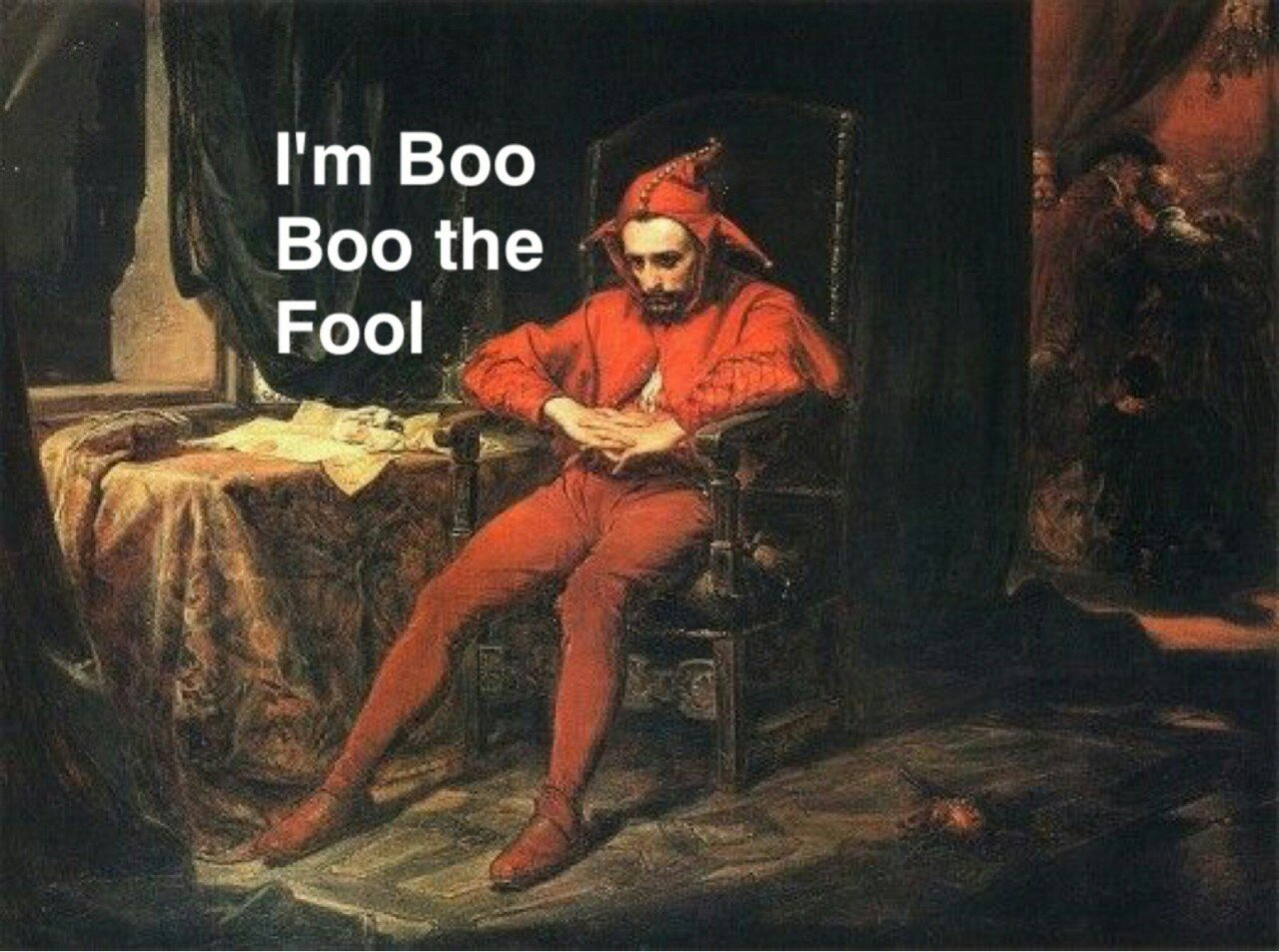
We come to find out that this new addition to the franchise is named Roche, he’s a renegade third class SOLDIER, and he’s called “Speed Demon” because he likes to ride around on motorcycles. We fight him twice—once on motorbikes and once in a one-to-one sword fight—and then he disappears, never to be seen or heard from again throughout the entire game.
I’m going to be honest with you, folks: Roche completely baffled me. I had fallen into the speculative trap that teaser trailers often set up for us, and I felt that I had completely wasted my time theorycrafting about this guy to the point that when I finally saw him in the game and realized he was only showing up for that brief amount of time, I felt hoodwinked. I thought the trailer had gotten one over on me, and that I had been promised something by the trailer that the final product did not ultimately deliver to me. I was deeply frustrated, and yet I couldn’t stop thinking about who this character was and why he was included so specifically in this game.
As I started thinking more about Roche and what he means to Remake, I realized that the only promise that had been made was the one between me and my lore-obsessive brain: I had convinced myself that everything I knew about the other games in this series would have some bearing on what Remake would have to say and the way it would be saying it.
No one lied to me about Roche: I had just gotten wrapped up in my own fan-fiction about who he could be and what that could mean for the game.
After that realization, I decided to eschew all my lore knowledge from the prior games, stop thinking of Roche as a reference to a prior installment in the franchise or a teaser of things to come, and start thinking of him as an entity in Final Fantasy VII Remake on the game’s own terms. Why is he presented like this? What is it that he actually tells us when he arrives in the scene? In a game that feels finely crafted and deliberate in its narrative decisions, why is this character presented to us in the way that he is?
Well, Dear Reader, after some careful consideration of when he appears and what he does, I will put it to you that there is much more to Roche than meets the eye, and he may just speak to the larger themes of Final Fantasy VII Remake—and to our role in the story.
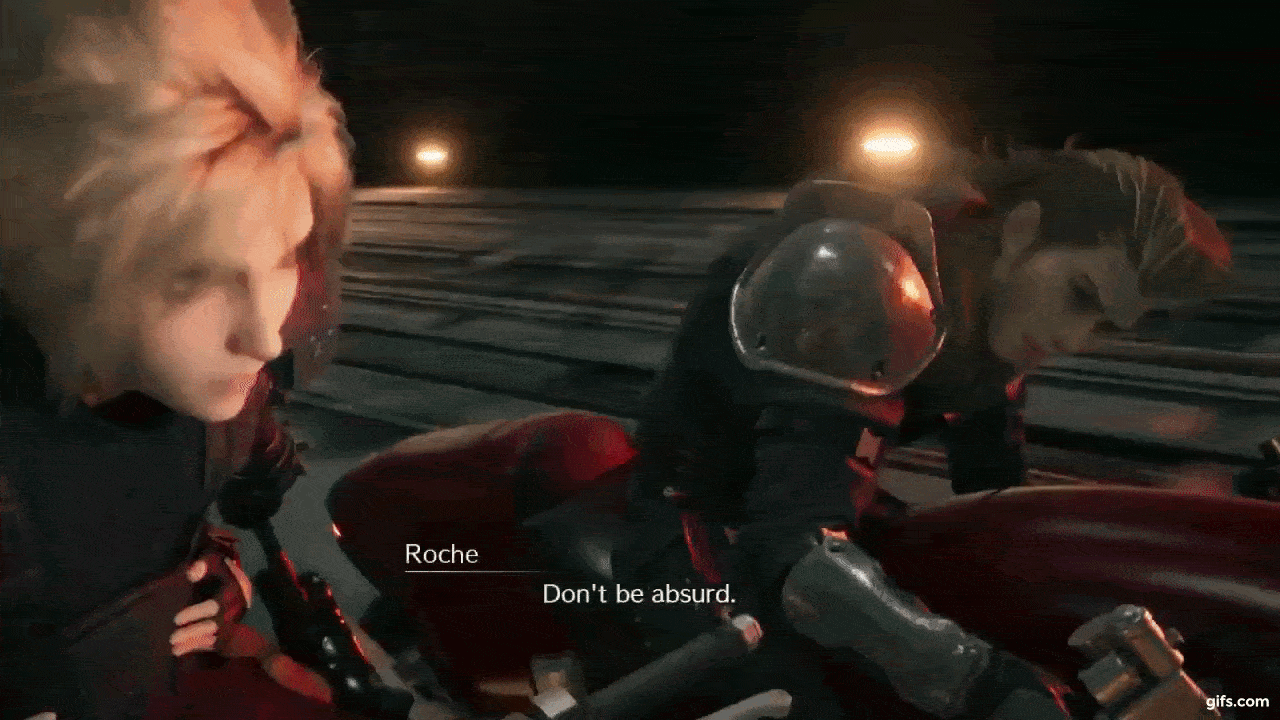
The “Speed Demon’s” Quick Appearance
In my last article on Final Fantasy VII Remake, I extolled the importance of doing deep dives into specific scenes in video games to extract as much meaning as we can from them. There is often a lot we can learn about the overall narrative of a story by taking the time to closely examine even a few minutes of the story, and there’s no better opportunity to do that than with Roche’s scenes, especially since they are so few in number.
Roche is introduced to us in Chapter Four of Final Fantasy VII Remake, which starts with Jessie, Wedge, and Biggs recruiting Cloud to come with them up to the Sector 7 plate to appropriate some materials from a Shinra warehouse to make the bomb for the next reactor mission. The trains aren’t running up to the plate this late at night, so the gang gets their motorcycles ready and sets off for the tunnel leading up to the plate.
When the gang heads into the corkscrew tunnel leading up to the plate above, they hit a security checkpoint that alerts some Shinra troops to their position, and a chase ensues. Eventually, after Cloud and Co take out a few of the troops, the camera focuses in on a side of the tunnel, and we see a lone man leaning against a wall. As we pass him by, he blows us a kiss, and the focus shifts back to the chase.
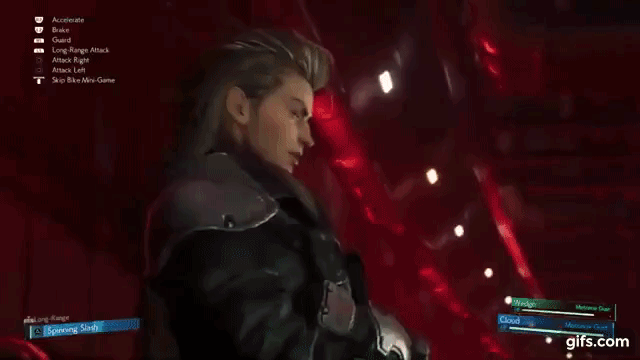
This is our first look at Roche, and we are then given some dialogue by the Shinra troops that give us some context for who this guy is. This is their conversation:
“SOLDIER en route. HQ’s saying he’s less than a few minutes out.”
“Copy. You think it’s ‘him’?”
“Probably. All the more reason to finish this quick. Don’t need that kind of trouble.”
From this exchange we learn two very important things:
- Roche is, in fact, a SOLDIER.
- Roche is a very troublesome SOLDIER.
We get the impression from these lines that the troops would prefer to take care of the issue themselves because this guy evidently has a reputation for being a pain to deal with in combat situations. So, from this conversation and the cheeky visual introduction we have of him blowing a kiss to the camera, we can assume that Roche is going to be a quirky character, to say the least.
This assumption is confirmed only a few moments later when those same Shinra troops say that he’s about to show up and that they should break formation before he gets there. We then see why they wanted to leave so badly: Roche enters the scene by driving his motorcycle into one of the officers, causing the officer’s bike to explode, taking both of the troops out in a blaze of glory. As the smoke clears, Jessie askes Cloud who this maniac is, and Cloud replies simply, “A SOLDIER.”

We then have one of the game’s motorcycle-boss-fight sequences where you have to dodge Roche’s attacks as he taunts you, saying over and over again how excited he is to fight you and how he can’t wait to see how much past the “redline” this fight can be pushed. He is clearly obsessed with speed and breaking one’s own limits, and, through his dialogue, we get the impression that while he may occasionally do what Shinra tells him, what he really wants is a challenging fight with someone who can keep up with him.
We finally beat him, and Cloud leaps off his own bike for a moment to slash up Roche’s bike, burning out the engine and causing him to slow down and fade from the view of the AVALANCHE gang. Cloud, almost reciprocating the playful taunts that Roche has been using so far, asks him if he’s had enough, and Roche concedes this round to Cloud, saying, “Maybe next time we can keep it just between the two of us?”, clearly setting us up for a rematch with him later down the road. As Roche’s bike slows down and he fades into the background, he shouts, “Until we meet again, my friend!” and drives off into the distance.
The motorcycle sequence ends, and Cloud and the gang head up to the Sector 7 plate to visit Jessie’s parents. While the gang is catching up with Jessie’s mom, Cloud sneaks around back to where her comatose father lies motionless on his bed, poisoned from too much exposure to Mako energy. Cloud steals his Shinra employee badge, and the gang heads up to the Shinra warehouse to procure whatever materials Jessie needs for her new bomb.
What follows is a siege of the warehouse, with troop after troop filing in to stop Cloud, Wedge, and Biggs from their assault on the warehouse while Jessie sneaks around gathering her components. The fight lasts a few rounds with Cloud fending off troops, dogs, and machines. Finally, when it looks like the gang is going to be surrounded and killed for breaking into this warehouse, who shows up but our boy Roche, flying into battle on his motorcycle.
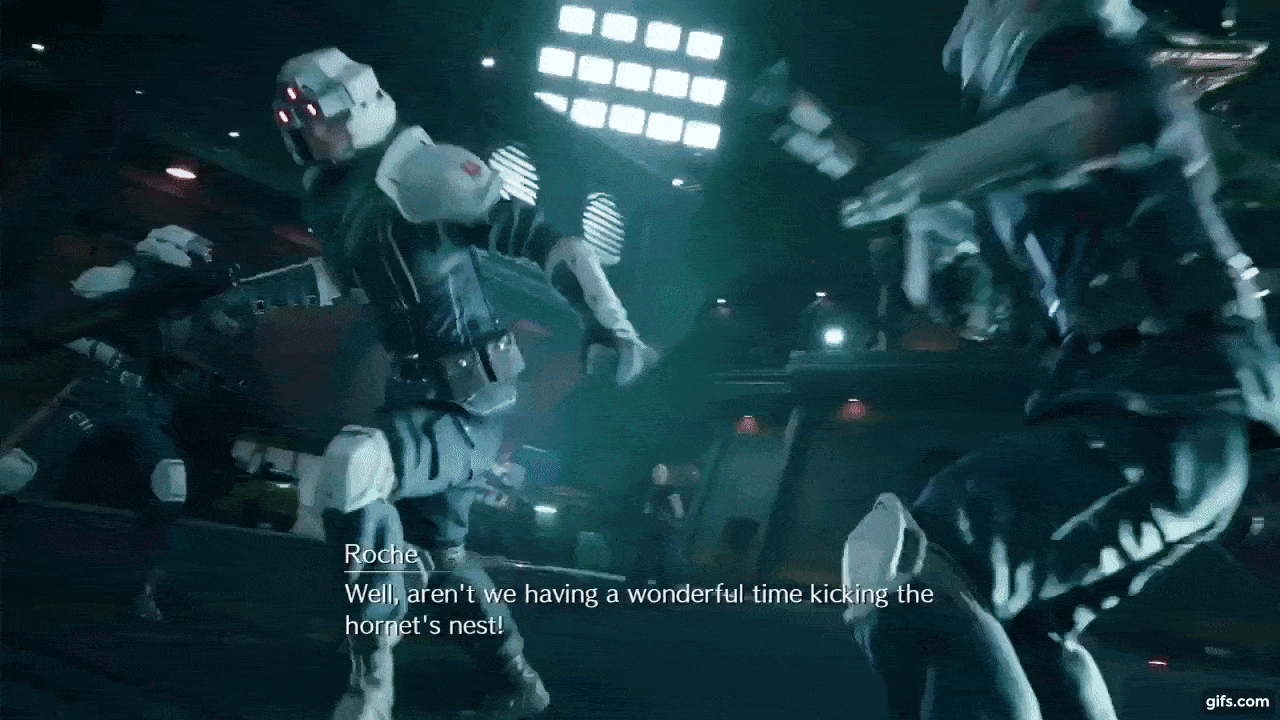
“Well, aren’t we having a wonderful time kicking the hornet’s nest,” he screams as he starts driving around the warehouse, knocking out machines and troops alike. He dismounts his bike and readies his sword: the one-on-one fight that he wanted so badly just a few moments ago is about to start.
The boss fight proceeds, and Roche makes a point to restore your HP and MP so that the fight starts fairly. As you land a few hits on him, he takes a second to stop, admire his sword, and then look out at Cloud, excitedly exclaiming, “I told you we were gonna push it past the redline!”
After you land the final blow, Roche takes a moment to gather himself before walking back to his bike. Cloud asks if he’s satisfied, and Roche laughs, saying that such fleeting pleasure could hardly satisfy him, and that “there are higher heights to which you and I can still soar.” Cloud looks at him, puzzled; then, with more manic laughter, Roche bids him farewell and drives off once again, promising that they’ll meet again later down the road. After he disappears, the gang is saved by AVALANCHE operatives who fight off the Shinra troops and give them time to escape.
That is the last time we see Roche in the entirety of the game. He leaves as quickly as he arrives; after toying with Cloud and the player, constantly taunting us with promises of pushing past one’s limits and continuing this dance with him, he disappears and is never heard from, mentioned, or even referenced in the following chapters of the game. And yet, based solely on this brief interaction we have with him, we get a lot of insight into who he is and what he represents as a character.
Roche is a SOLDIER, but we learn from the Shinra troops’ dialogue before his entrance and their demise during his entrance that he is a renegade who doesn’t really play by Shinra’s rules. He’s a rogue operative, and through his conversation with Cloud it becomes clear that the only reason he’s here at all is that there’s something about Cloud that intrigues him. Tellingly, Roche never mentions that he’s interested in fighting Cloud because he’s a fellow SOLDIER: he’s only interested because he’s seen that Cloud can handle himself in a fight and has impressive skills on a motorcycle. In this way, Roche fits the classic anime antagonist trope of the rival who respects the protagonist for his skill and ability. He is full of playful taunts, and through his boisterous and frequent addresses to Cloud as “my friend,” we can see that he has some respect for this person who can keep up with his speed, both literally and figuratively.
And while we can view Roche as a respectful rival, there are also some pretty heavy indicators that he’s not exactly compos mentis. We are told a number of times in the following chapters that SOLDIER operatives often degenerate physically and lose their minds due to the heavy exposure to Mako energy that gave them their superhuman abilities in the first place[1], and our interaction with Roche certainly seems to imply that SOLDIER members are not all there upstairs. This sets Roche up as a possible foil to Cloud beyond a mere rival, and something of a portent of Cloud’s possible future. After all, if both Roche and Cloud were exposed to Mako energy, and Roche seems off his rocker, isn’t it possible that the same mental degeneration could happen to Cloud? What if it already has?
In one fell swoop, Roche’s inclusion in the story puts Cloud’s reliability as a narrator into question—because if one SOLDIER can go crazy, why couldn’t Cloud?
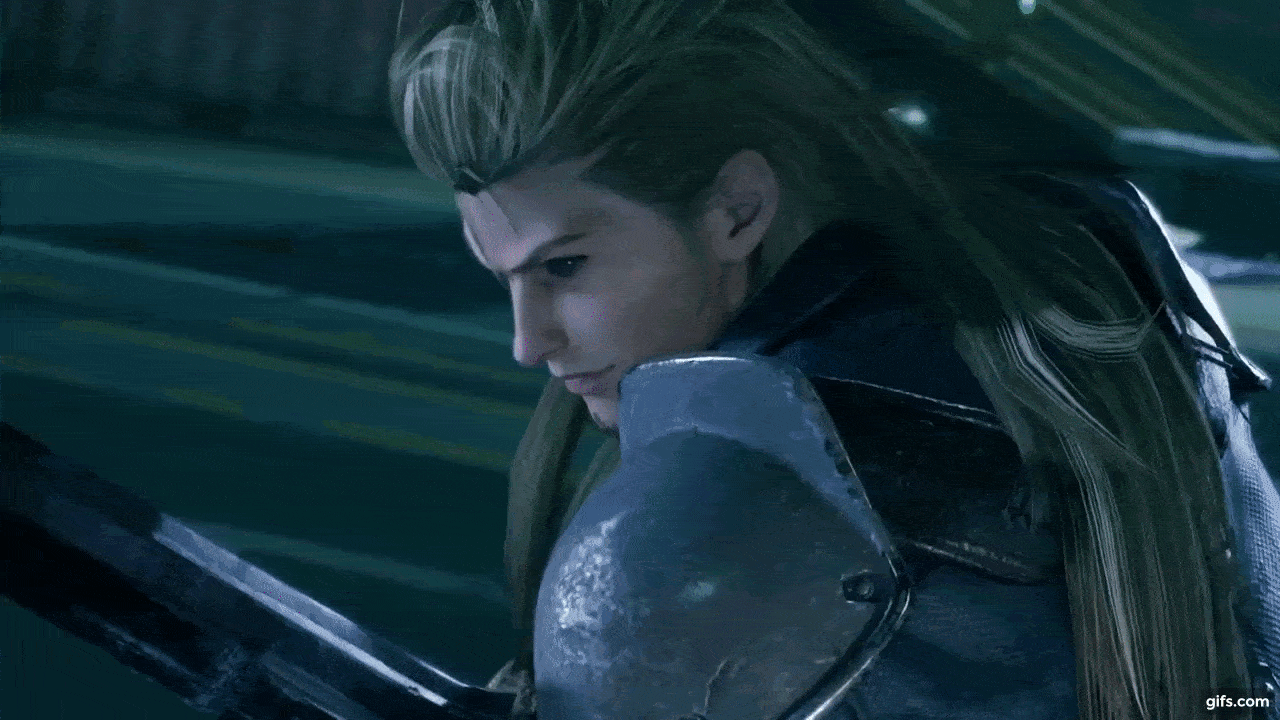
If Chapter Four ended with Roche’s flamboyant departure, then I would stop my analysis of his character here. But nothing is ever that simple, Dear Reader, and Chapter Four doesn’t simply end with Roche’s exit. Something very important follows this little episode with Roche that makes me think much more deeply about this character and just what his purpose in the story may be, and it all relates to a possible connection to the Whispers.
You Can Hear the Cry of the Planet: SOLDIERs, Whispers, and Mako Exposure
Cloud and company return back to the Sector 7 Slums with whatever equipment Jessie procured from the Shinra warehouse, and they are ready to proceed with the mission the next morning. After Cloud says goodnight to Biggs, Wedge, and Jessie, he returns to the apartment he’s staying in and tries to get some sleep before the mission in the morning. He is woken up by a specter, which we later find out to be a Whisper, floating above his bed. He sees it, freaks out, and then runs outside to see that these Whispers are swarming Sector 7 like insects, terrorizing the people living there and seemingly congregating around Barrett and the rest of the AVALANCHE gang over at Tifa’s Seventh Heaven bar. You fight through them, fend them off, and the game moves on with the mission to the next reactor continuing apace.
Now, at this point, you may be asking yourself why I’m bringing up those pesky Whispers in an article that is trying to figure out who Roche is and why he was included in the game. By way of an answer, I would invite you to ponder something with me as we move forward with this look into Roche and what he may mean for the story of Final Fantasy VII Remake: Why did the Whispers appear at the end of this chapter?
To answer that, let’s first think about what the Whispers are and what they represent in the story. As Aaron has discussed on the site previously, the Whispers are explained as being the “arbiters of fate,” who, in layman’s terms, will show up in the story whenever it is deviating from the plot of the original story or has otherwise changed. They swarm on particular locations at particular times to ensure that things happen as they happened in the original Final Fantasy VII; whenever something has changed, they take great pains to correct it.
With that in mind, let’s think about Chapter Four as a whole, and why the Whispers might have shown up at the end of it to make sure that things go “as planned” and the second reactor mission still occurs.
Until Chapter Four, Final Fantasy VII Remake follows the story of the original very plainly. There’s the first reactor mission, meeting Aerith, heading back to the slums, and setting up for the next mission. There are some notable additions to the story (namely, Cloud’s prophetic encounter with Sephiroth in the alleyway before he gets on the train, a moment where Aerith is fending off the Whispers before Cloud meets her, and, of course, all the sidequests and missions that you do when you’ve finally made it to Sector 7), but when you think about what is happening more broadly in those scenes, you’re still basically following the tracks that the original story set down.
- Sure, Cloud encounters Sephiroth, but he still makes it to the train back to the slums.
- Sure, Aerith is fighting off some Whispers, but she still meets Cloud for the first time.
- Sure, Tifa takes Cloud on a tour through the Slums, but he still reunites with her and discusses the next mission with Barrett.
Everything is still largely happening as “fate” would have had it.
But then, Chapter Four happens, and Jessie shows up asking Cloud to come with her on a mission to the plate to get some materials for her new bomb. Those of you familiar with the original story know that this is not something that could have possibly happened there. You could make the argument that Jessie, Biggs, and Wedge may have gone up to the plate to procure these items in Final Fantasy VII, but Cloud certainly didn’t go with them, and so this marks a moment in the remake when things are starting to get a bit different—and perhaps the Whispers begin to notice.
Notice that Roche only appears in the first chapter in the game that deviates from the plot of the original, and what’s telling about his appearance in this regard is that his dialogue implies that he knows more than he’s letting on. His first appearance is nearly a fourth-wall break addressing the camera, not Cloud. He goes on to discuss limits, pushing past them, and soaring to new heights with Cloud as their journey together continues. Perhaps most tellingly of all, when he makes his second appearance in the chapter, he loudly exclaims, “Well, aren’t we having a wonderful time kicking the hornet’s nest?” While that could, of course, be in reference to Cloud and the gang stirring up trouble at a Shinra warehouse, the Whispers sure do seem to swarm like angry hornets whenever something seems to be changing, don’t they?
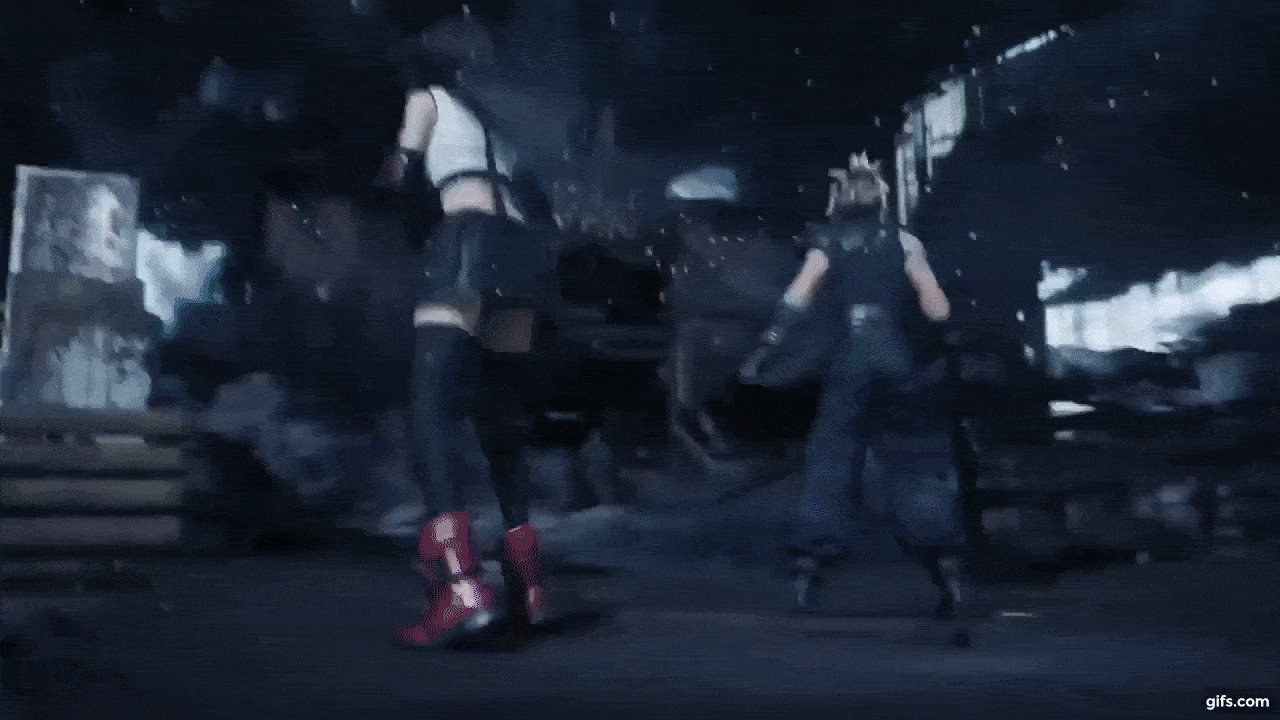
Now, if you’re like me, you’re very excited to be thinking about Roche as this extra-narrative rogue agent coming in and commenting on how exciting it is that you’re changing the way things are “supposed” to go in the story of Final Fantasy VII, but before we get too ahead of ourselves, let’s take a moment to ground ourselves in the material that Remake is providing to us. If we don’t take a look at this idea on the game’s own terms and use the information it provides us in the text, then we may as well be speculating about five seconds of a trailer again.
So, now that we’re thinking of Roche as a character that possibly knows more than he’s telling us, let’s look at the reasons why that may be the case.
Let’s go back to the Whispers once again and focus on how the game explains them to us. We are first given a concrete explanation as to what they are after Aerith touches Red XIII and imparts her knowledge to him. Red explains that the Whispers are “arbiters of fate,” that they are an extension of the Lifestream and therefore of the Planet, and that they interfere in the world when it seems that events are going to be changed. We learn from this explanation not only what the Whispers are and what they do, but also that Aerith can somehow impart knowledge of them to other people. Why would she be able to do this?
Well, we know that Aerith is an Ancient and therefore has a deeper connection to the Planet than most people. This connection is through the Lifestream, which is described as being an amalgamation of all energy and memory, and we see this coming to pass in other moments in the game where Aerith appears to be communicating with the Planet simply by touching the ground or listening intently. That connection could explain how Aerith knows of the Whispers and how they operate—but she’s not the only one who has this knowledge.
Sephiroth also clearly has an understanding of the Whispers and some sort of connection to them.[2] What is the common factor between Aerith and Sephiroth that we know implicitly from the story of the game? We know that Hojo is interested in studying Aerith due to her heritage, and he is also the head of the SOLDIER project. We are told that, through his research of Aerith, her mother Ifalna, and Jenova (whom Hojo believes to also be an Ancient), the SOLDIER project was developed and expanded. SOLDIER operatives are created by taking capable people and bathing them in excessive amounts of Mako energy until they are the superhuman war machines like Cloud and Sephiroth. Mako energy, we are told, is the Lifestream distilled into a power source, and so it can be said that SOLDIER operatives are created by exposing them to concentrated Lifestream. Therefore, we have reason to infer that Sephiroth has knowledge of the Whispers because, like Aerith, he is connected to the Lifestream—in his case, by virtue of being exposed to Mako energy as a SOLDIER.
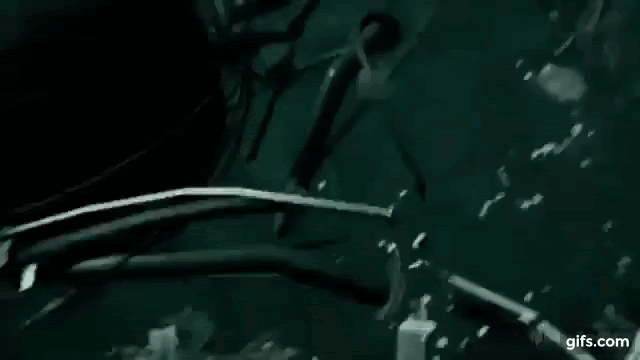
This also explains why Cloud is having visions of not only the past, but also possible future events, and why he may be seeing Sephiroth where other people cannot. Further, it’s awfully telling that when Cloud enters these prophetic states, the screen is tinged green, as if bathed in mako.
And so, by inferring that SOLDIER operatives are people who have been effectively given the same knowledge that Aerith has of the Whispers through her connection to the Lifestream, we can then conclude that Roche may be speaking cryptically because he, like other SOLDIER operatives, is aware of the Whispers, aware of what they try to prevent, and perhaps even aware that some version of these events has happened before and that history appears to be diverging from that version of events now.
This is particularly exciting for me because it has the potential to give SOLDIER a much deeper meaning in Final Fantasy VII Remake than it did in the original Final Fantasy VII. Originally, they were just super soldiers capable of incredible feats of strength. Now, though, between Sephiroth, Roche, and Cloud (to a lesser extent), it would seem that SOLDIERs are being used in the narrative to point out or accentuate when something is different, or when fate may have the potential to change.
If Roche’s dialogue about breaking through limits and soaring to new heights is in reference to breaking down the Whispers’ barriers and changing fate, then it lays the groundwork for SOLDIER being a vehicle through which we can truly explore not only the limits of these characters, but also our own limits in understanding how stories work and how we perceive our connection to them. Roche may be more like the player than we initially realized: aware that he’s confined to a particular narrative, and seeing the glimmer of hope in escaping that fate through fighting Cloud, one with the potential to push past those limits. The game already ends with the defeat of the Whispers and moving hesitantly into undiscovered country, and I can’t wait to see just how far past the redline we’ll push things.
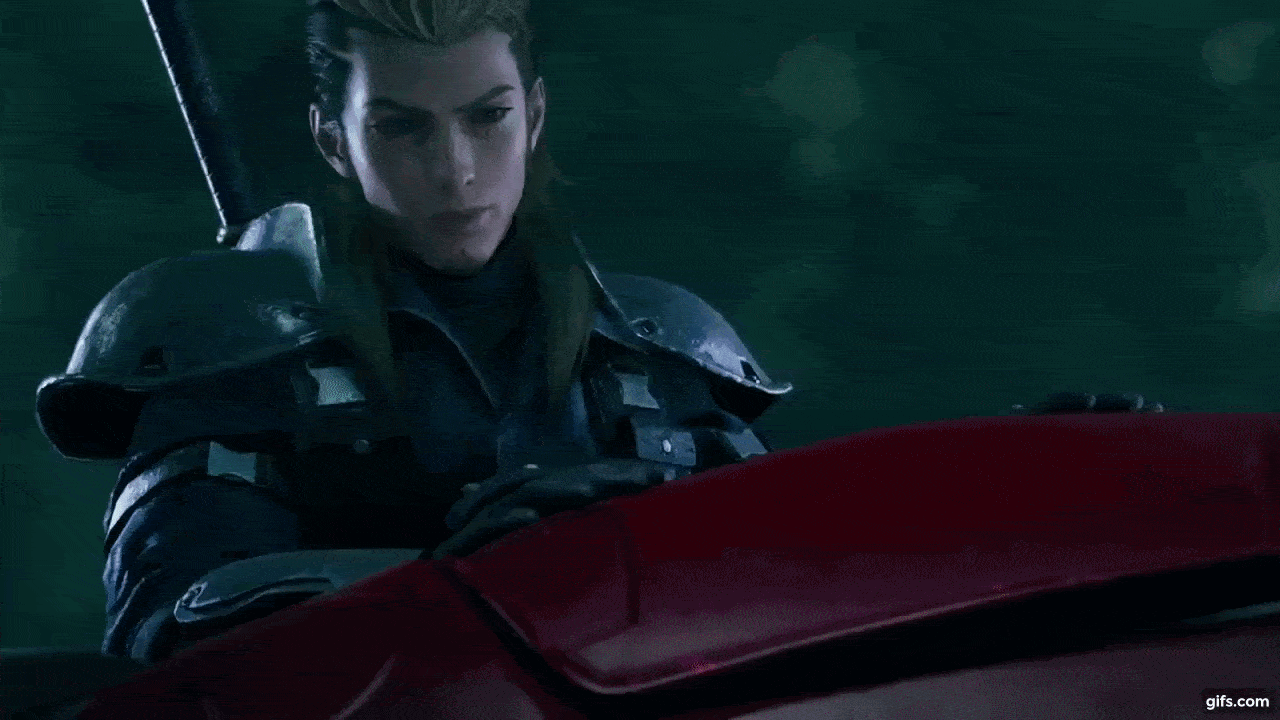
- In Chapter 7 of Final Fantasy VII Remake, President Shinra appears to the gang as a hologram and explains, “Once a SOLDIER, always a SOLDIER. Though not, alas, for very long. Accelerated cellular degradation being the most common cause of death by far.” Remake implies with this line and further exploration of the SOLDIER project in Hojo’s lab that SOLDIER operatives are as unstable as their futures are uncertain. ↑
- In the final fight with Sephiroth, he demonstrates the ability to control the Whispers by sending them after the party to attack. This command over them is not seen before or since in the game. ↑
Continue Reading
- The Legacy of Final Fantasy VII Remake series navigation: < “The Drawing Board: The Legacy of Final Fantasy VII Remake, Article Postmortem #1″ | “Critical Review: Final Fantasy VII Remake is Completely Incomplete” >

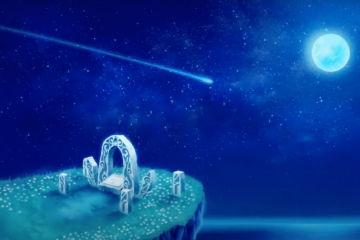
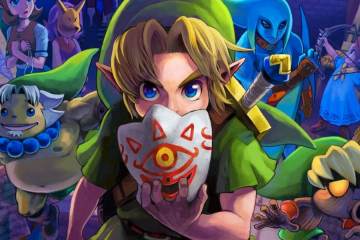
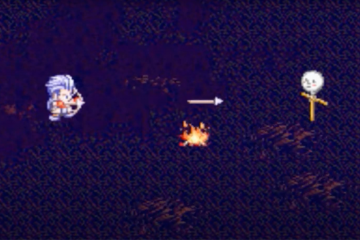
3 Comments
Scott Sheppard · May 30, 2020 at 10:10 pm
Alright Dan… between the three of you, my seismic stubbornness has been shifting toward actually playing this game. This meta analysis of Roche (who I learned existed while reading this article) is extremely interesting. Retconning some additional meta into the SOLDIERs is clever, and an argument you make convincingly.
The main two reasons I haven’t played Remake yet are: 1) I don’t have a PS4, and 2) I’ve played FF7 *so many times* in my life that I didn’t feel a need to experience it first-hand in HD. Twitch would be enough if I cared, I told myself. And that’s how I’ve approached it so far.
But the deep analysis you folks are throwing down on Remake have me nearly convinced this is an experience worth playing for its unique tweaks to the original story. So thanks Dan and Co.!
Dan Hughes · May 31, 2020 at 10:33 pm
Hey Scott, thank you so much for reading!
As a colossal fan of the original and all the subsequent games (with a special place in my heart for Crisis Core,) I totally understand your reticence to play it. I definitely felt some of that going into it because of how much I love the first one, but I think you’ll be more than pleasantly surprised.
What’s more, new inclusions like Roche and some of the other things that we’ve mentioned in other articles really make you reframe your understanding of not only the original story, but your connection to it. I think these deep dives into things like these have done the impossible and enriched my appreciation for the original even more! It’s definitely worth your time, and I’d love to hear your thoughts on it after you get the chance to play it.
Thanks again for reading, and cheers!
Mal · February 24, 2022 at 9:19 pm
I enjoyed reading this theory and I cannot explain how excited I am for the future of FF7
Spoiler start
I just finished playing remake myself and the only correction I could give is your misunderstanding about Soldiers. The President himself mentioned the degeneration but that is only in regard to Project G. If you dig into the story you’ll remember that Hojo experimented on Zack and Cloud (however Zack was already a first class soldier which is why he handled Hojo’s experiments with quicker recovery) Cloud however was not, hence his suffering with Mako poisoning after being exposed to Project S with Zack (it is implied through lore that this treatment would leave them immune to degredation). You can dig back to the story when a Genesis clone consumed Zacks hair in attempt to gain his (and subsequently Clouds) immunity but was transformed instead and it makes me wonder about how differently their bodies handled Project S considering Zack already had Mako exposure and if you look at it as a glass half full kind of thing maybe Cloud will always surpass Zack because he was only exposed to Project S and never went through Project G because he failed as a Soldier trainee from the very beginning and joined as Infantry. One thing is sure though, Roche and Zack have BIG roles to play in Remake and I am beyond hyped.